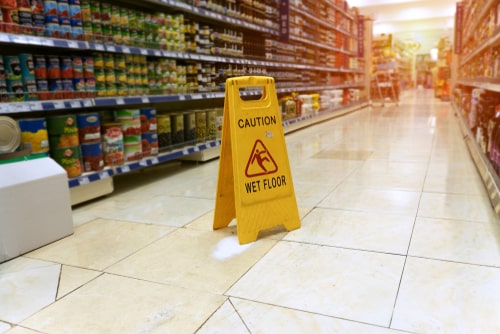A premises liability accident, an injury-causing accident that takes place on another person’s property, can have a serious impact on your life. If the owner of the property where is at fault for your accident, you are likely entitled to file a claim for compensation. Depending on the circumstances of your accident, many different kinds of premises liability claims are feasible.
I was injured on someone else’s property. Am I eligible to file a lawsuit?
If you were hurt on someone else’s property, the experienced Virginia premises liability lawyers at Shapiro, Washburn & Sharp can help you understand the laws that are relevant to your claim and help you seek full and fair financial compensation for your damages.
What Is Premises Liability?
Premises liability is the branch of personal injury law that governs claims arising from being injured on another person’s property. Due to the fact that premises liability accidents occur with alarming frequency, premises liability claims are the second most common type of personal injury case.
A property owner is not liable for every single accident that takes place. They are only liable for those that they could have prevented. There are also reasonable limitations to premises liability, like the amount of insurance coverage that a homeowner or business owner carries. Fortunately, the majority of businesses have substantial insurance policies in order to cover liability, and almost all houses are covered by the homeowner’s insurance policy with the exception of some very unusual circumstances.
What are the Most Common Premises Liability Accidents?
The three leading types of premises liability accidents in Virginia are:
- Slip-and-fall/Trip-and-fall accidents
- Dog bite accidents
- Construction site or workplace negligence
Although these are the most common, they are not the only types of premises liability claims.
What are the Four Elements of Premises Liability?
In order to see a successful outcome to your Virginia premises liability claim, there are four distinct elements that must be proven. They are:
- The respondent was the occupier or owner of the property at the time of the accident. A business owner who is leasing a property from a retail center, like a shopping mall, can still be held liable.
- The respondent was negligent in their maintenance and care of the property. They may have violated a regulation or law, but even without establishing such a violation, the victim can prove negligence.
- The victim sustained a physical injury. If this is the case, they may also be able to claim damages for pain and suffering.
- The victim’s injury was caused by the respondent’s negligence
If the defendant is determined to be liable for hazardous premises, settlement negotiations are usually the next step.
Legal Status of a Guest
A visitor’s legal status on the premises directly impacts what, if any, duty of care the owner or occupier owes. There are several types of visitors, and knowing which category you fall into can help you figure out if the owner or occupier was negligent.
Invitees
An invitee is someone who enters the premises for the purpose of conducting business with the owner/occupier, such as a customer at a supermarket or a patron at a restaurant. An invitee is someone who provides an economic benefit to the owner/occupier.
Invitees are owed the highest level of care. The owner/occupier must address, repair, or warn invitees of any potential hazards they are aware of or reasonably should have been aware of after examining the property, such as mopping up a spill or placing caution signs around it to ensure that no one slips.
Licensee
A licensee is also an invited guest, but they are on the premises for their own gain rather than the benefit of the owner. For example, if you are invited to a neighbor’s house for a backyard barbeque, you would be classed as a licensee.
Property owners owe the next highest level of care to licensees. They are required to address any potentially dangerous conditions they are aware of or should be aware of. However, they are not obligated to check for dangers as they would be if an invitee was on the premises.
Trespasser
A trespasser is someone who comes onto a property without the owner/occupier’s permission. Interestingly enough, property owners do owe some degree of care to trespassers in the sense that they may not actively set a trap or ambush or deliberately create a hazardous condition.
Children
Children are in a category of their own since they do not have the same ability as an adult to exercise care and good judgment. A child might not know they are trespassing or they could be tempted onto a property by items such as swimming pools, trampolines, and other dangers known as “attractive nuisances” due to the risk they cause.
If a property owner is aware that children trespass or might trespass or they are aware their property contains an attractive nuisance that could possibly lead to injury or death, they are obligated to take reasonable precautions to prevent an accident, such as installing a fence. If they fail to take prudent safety precautions, they can bear premises liability.
Talk to a Virginia Beach Premises Liability Lawyer Today
If you were injured at a hotel, grocery store, other public establishment, or a private residence that was not your own, you may have a valid premises liability claim. Call the Virginia premises liability attorneys at Shapiro, Washburn & Sharp at (833) 997-1774 and schedule your free consultation with a member of our legal team. We can review the details of your case and advise you on the most effective legal strategy for securing full and fair financial compensation for your losses.
